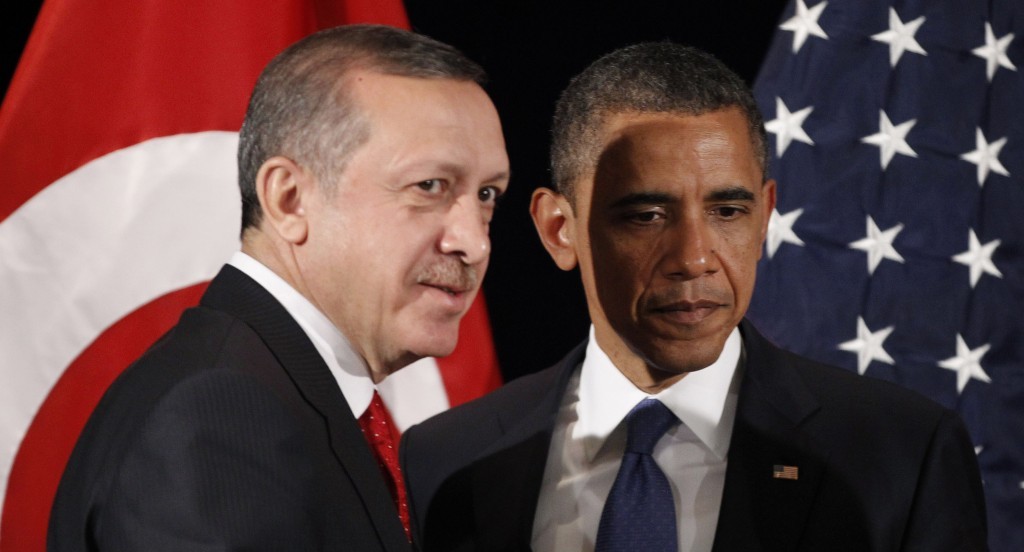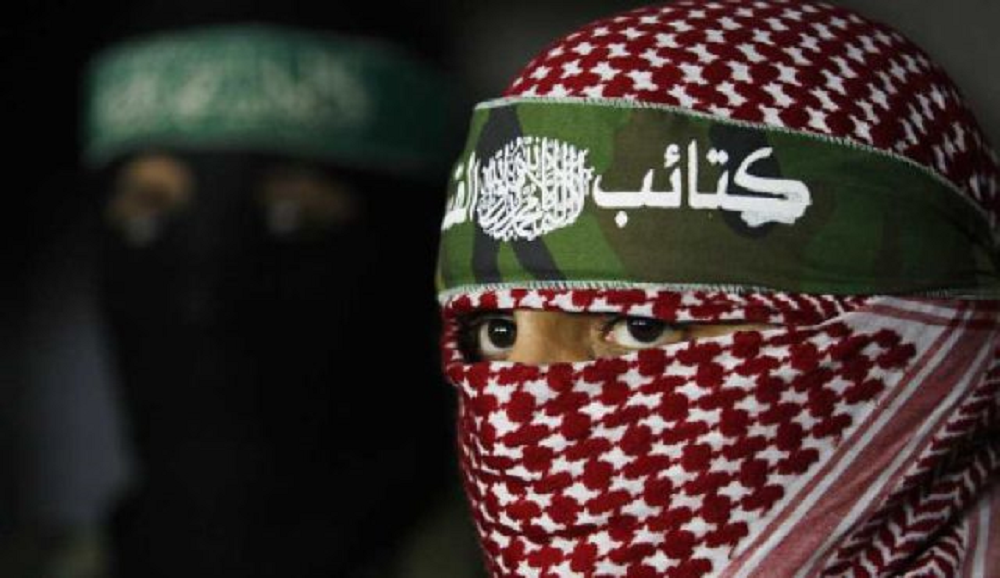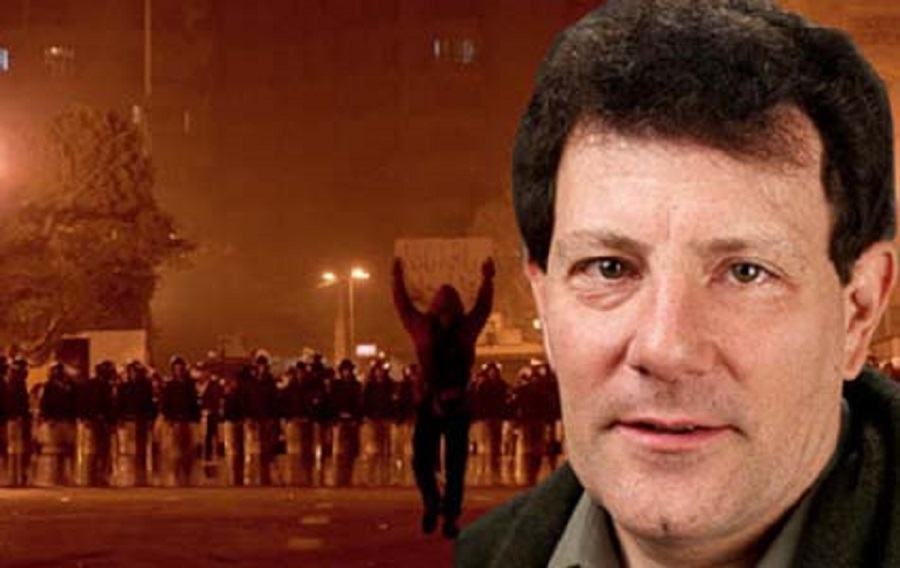Canary in the Mineshaft
Commentary’s Norman Podhoretz was exactly right when he coined the term World War IV to describe our current global conflict with the supporters and sponsors of radical Islam. In the Middle East today, the Dark Side is on the offensive. The Iranians believe, not without some merit, that they can divert world attention from their own nuclear weapons program and head off a war with the U.S. by starting a regional war with Israel through their proxies – Hamas and Hezbollah. Neither of those terrorist organizations would have kidnapped Israeli soldiers and fired missiles into Israel’s heartland without Iranian permission and Syrian logistical support. By fomenting another Middle East War, Iran is striking where it thinks it is strongest and where, it believes, the West is weakest. Should Western support for Israel falter in its current offensive against the terror infrastructures of Hamas and Hezbollah, Tehran may be proven right.
As Lebanon’s largest political party (with 25 of the 128 seats in the Lebanese parliament including two ministerial portfolios) and the most potent armed militia in the country, Hezbollah has become, in effect, a Shiite Muslim mini-government in Lebanon boasting close ties to Iran and Syria. Much of the fault for the current conflict can be laid at the doorstep of the Lebanese government. UN Security Council Resolution 1559 passed in September 2004 called on the government of Lebanon to dismantle Hezbollah and to exercise sovereignty up to the border with Israel, but this it failed to do. As a consequence, Israel is blocking Lebanon’s ports from the sea; has breached the runways of Beirut International Airport; and is prepared to destroy generating plants and other high-value targets if that will create enough political pressure on Hezbollah. In all of this, Beirut only has itself to blame for allowing Hezbollah to maintain a permanent armed presence in southern Lebanon and the Israelis are well within their rights to hold Beirut accountable for Hezbollah’s actions just as America was within its rights to hold the Taliban government in Afghanistan accountable for harboring and sheltering al Qaeda in the aftermath of 9/11.
If Israel is successful, the Israeli action may weaken Hezbollah to the point where the Lebanese army will be able to complete what Resolution 1559 required it to do – dismantle Hezbollah as a separate “state-within-a-state.” While the leadership of Hezbollah claims to be a legitimate, democratically elected political party, the reality is that it has always been a wholly owned subsidiary of Iran and has conducted a unilateral foreign policy in Southern Lebanon since the Israeli withdrawal in 2000. The Iranian mullahs provide the organization with an estimated $100M a year to finance, train, and equip the Hezbollah militia as a means of maintaining a permanent state of instability along Israel’s northern border. Now Hezbollah will reap what it has so diligently sown.
Iranian Revolutionary Guard units have set up dozens of advanced rocket and missile bases in the Beka’a Valley and along the border with Israel, have provided Hezbollah with a network of sophisticated control towers and monitoring stations along that border and have transferred to the organization an estimated 13,000 missiles including over seven hundred Zalzal, Raad, Shahin and Fajr-3 and Fajr-5 medium and long-range Iranian and Syrian missiles (many stored in specially-designed rooms built into civilian houses and in underground bunkers in Southern Lebanon) that rein down on Israel each day and have forced the residents of the northern Israel cities of Metulla, Acre, Afula, Nazareth, Tiberias, Karmiel, Nahariya, Safed, Kiryat Shmona and Haifa to seek protection in bomb shelters. More ominous in terms of an Iranian hand in this affair was the recent attack on the Israeli Saar-5 corvette Ahi-Hanita off the coast of Beirut not with an armed drone aircraft (as claimed by Hezbollah to muddy the trail leading to Tehran), but with a deadly accurate, radar-guided Chinese-made C-802 Silkworm shore-to-sea missile fired by Iranian Revolutionary Guard units.
Nor is Iran the only shadow in the current confrontation. The heart of the problem beats in Damascus. Syria’s goal is to destabilize the Middle East. The Syrian regime has come to believe that Iranian ascendancy in the region is a foregone conclusion and Bashar al-Assad is clearly desirous of joining their parade. Syria has become part Iranian ally and part Iranian client, and the fact that Western envoys are pleading with it to help restrain Hezbollah only furthers their commitment to Iran. The regime openly hosts Khaled Mashaal (head of the Political Bureau of Hamas) in Damascus, transports terrorists into Iraq, has facilitated terror attacks in Jordan and is trying to undercut Lebanese sovereignty by providing Hezbollah with advanced weaponry. It has also facilitated the transport of captured Israeli soldiers to Iran in the past for “safekeeping” while Hezbollah negotiated their release with the Israelis. This time, however, Assad may have overplayed his hand.
The tunneling into Israel and subsequent kidnapping of Israeli soldier Gilad Shalit by Hamas was planned in Damascus where Hamas, together with Palestinian Islamic Jihad, the Popular Front for the Liberation of Palestine, and other terrorist groups operate freely. Assad is acting with impunity because he sees America bogged down in Iraq and does not view American threats as being anything more than mere rhetoric. It is a dangerous perception and until such time as he has been induced to believe otherwise, he will continue to feed the terrorist fires of the Middle East.
In the end, Western support for Israeli efforts to destroy the infrastructures of terror in Gaza, Lebanon (and inevitably Syria) is critical. As Michael Oren has written in the Washington Post: “…….targeted assassinations are no substitute for deterring the state sponsors of terror. Israel cannot hope for quiet along its borders as long as Hamas leaders continue to direct terror with impunity from Damascus and as long as Hezbollah receives orders from Syria and Iran.” There will be no resolution of the conflict in Lebanon or Gaza unless and until the regimes in Syria and Iran are forced to believe they will have to pay a high price for the war they are waging through their proxies.
Israel, by its actions, must eliminate Hezbollah as a security threat (or downgrade Hezbollah to the point where the Lebanese army itself can regain control over southern Lebanon), expel the Iranian presence from Lebanon, root out the weapons caches stockpiled in private homes, schools, garages, under civilian parking lots and in subterranean ammunitions factories, hit the rocket and missile-launching sites and terrorist training camps Hezbollah has established, and crush the terrorist infrastructures in both Damascus and Gaza if anything resembling victory is to be achieved. Anything short of these objectives will be seen in the Arab world as a strategic defeat for Israel and Western interests in the region and a victory for the Dark Side for whom this has been a consequence-free enterprise. If Israel fails, candies will again fly in the streets in Gaza.
If anything, the problem facing Israel is that it has followed the advice of U.S. Secretary of State Condoleezza Rice far too closely for far too long by showing an excess of “restraint” to previous Hamas and Hezbollah provocations. In the geo-political arena of the Middle East restraint itself is seen as an inducement for continuing the terror.
Israel is the “canary in the mineshaft”, the early warning signal to the U.S. and the West that two members of the Axis of Evil are intent on exerting their hegemony over the entire Middle East at American expense…….so rather than inhibit Israel’s response to these Islamic menaces, the U.S. administration must support it. Iran and Syria are using their proxies to change the strategic equation in the region so what is unfolding in the Middle East today is not just a local “Israeli problem.” The West, specifically the U.S., France and Russia must stop intervening to save terrorists from their Fate. Israel has surrendered land but not been granted the peace. For Israel, Operation Just Reward is not a matter of moral equivalence between aggressor and defender in the Middle East. It is a matter of survival.



